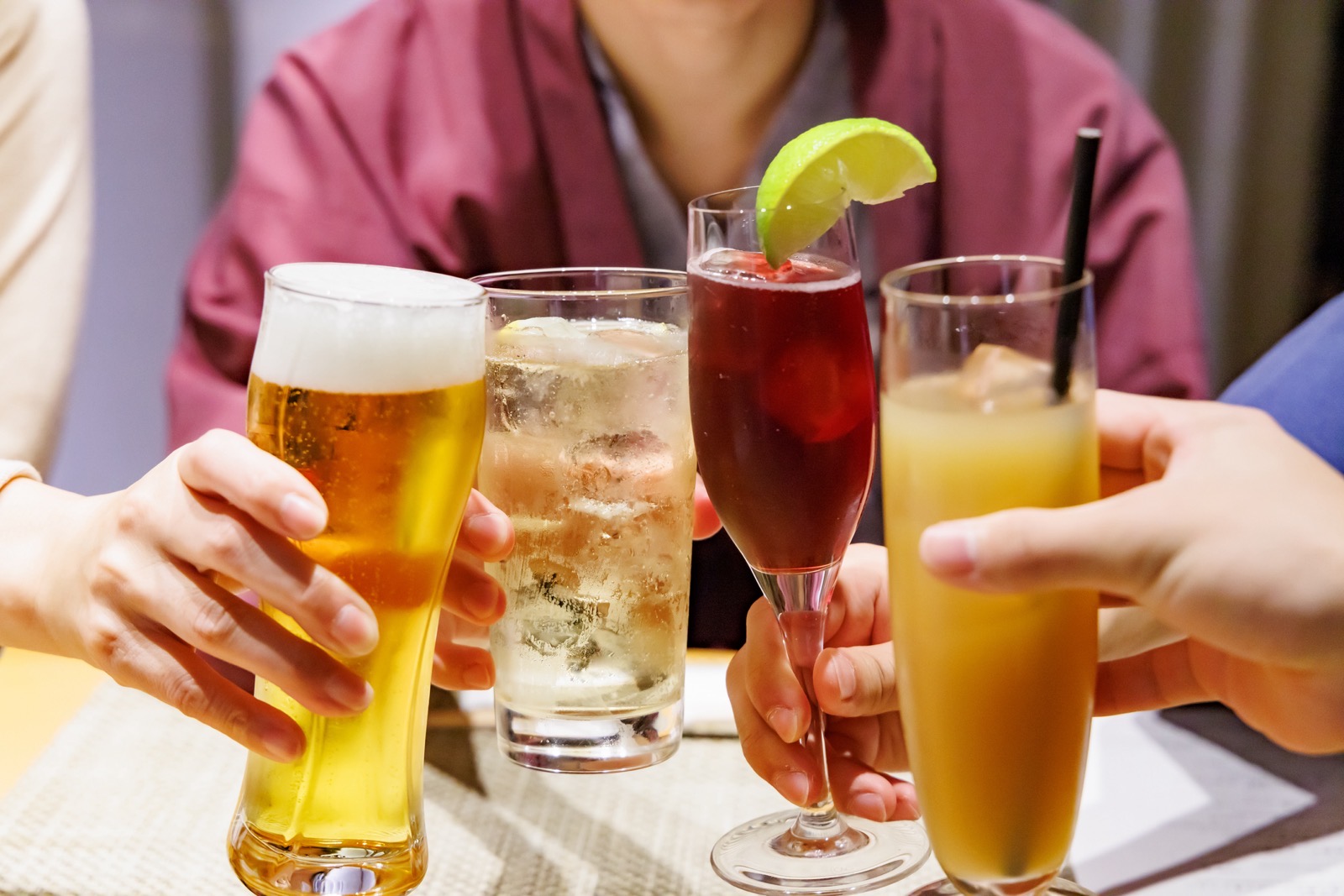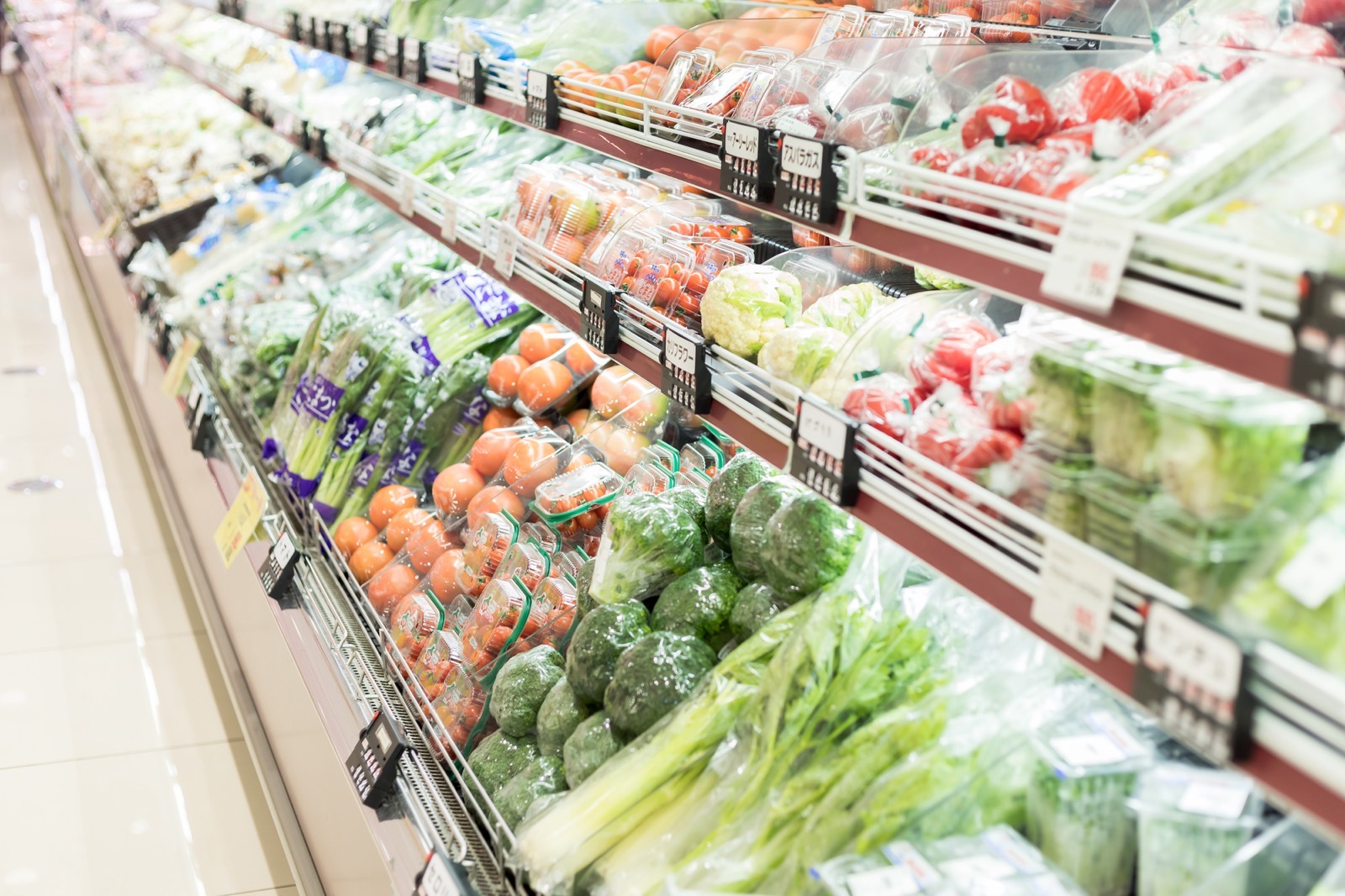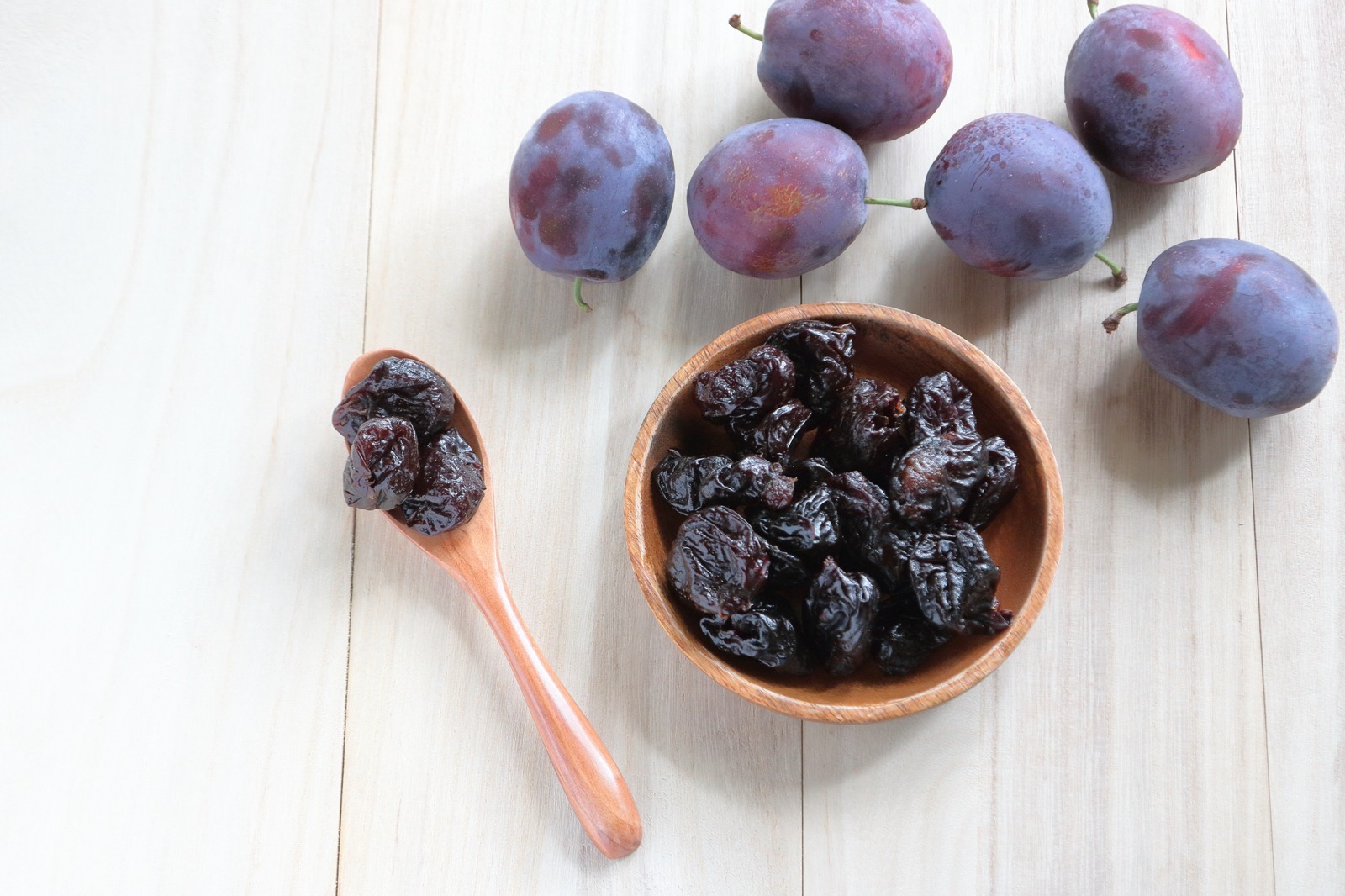As the weather warms up and travel season kicks into high gear, thoughts about how you might optimize your diet this summer probably aren’t on your mind. Yet suffering from tummy troubles like constipation, feeling fatigued, or dealing with dehydration is sure to put a damper on any holiday plans.
For those wanting to feel their best on vacation, I’ve shared a few of my favorite strategies for troubleshooting common nutrition issues while traveling. From digestive issues to overindulgence, consider this your guide to enjoying your healthiest wanderlust season yet.
Issue #1: Constipation
Prunes contain a sugar alcohol called sorbitol which has a natural laxative effect and can ward off constipation when traveling Image: Mayu78/Pixta
One of the most common issues plaguing travelers — especially those traveling in Japan — is constipation. Thanks to a heavy intake of white rice and small portions of high-fiber fruits and vegetables, the typical Japan traveler’s diet does little to promote regular bowel movements. Add in low water intake and a disruption to your normal circadian rhythms and things can go from bad to worse.
My tips
- Prioritize fiber
A lack of this key nutrient, found in plant-based foods like fruit, vegetables, whole grains, nuts, seeds and legumes is a major constipation culprit. With this in mind, constipation-prone travelers should aim to up their intake of these foods before and during travel to keep their digestion running smoothly. In addition to getting fiber through whole foods, fiber supplements like psyllium husk are known to be effective in alleviating constipation. When adding more fiber, be sure to up your intake slowly and drink extra fluids to prevent bloating, cramping or exacerbating your constipation. - Focus on constipation-fighting fruit
In addition to foods high in fiber, certain fruits have a reputation for acting as a natural bowl stimulant. These include kiwi, pears and prunes. The latter two fruits contain a natural sugar alcohol called sorbitol, which provides a mild laxative effect and can help soften stools and stimulate the digestive tract. You can find prunes, kiwi and pears – when in season — at Japanese grocery stores or produce stands. - Move
Physical activity, such as walking, helps digestion by increasing blood flow to the intestines. Spending long hours in the car, train or plane can prevent people from moving around much — so aim to stretch your legs and take a walk once you reach your destination.
Issue #2: Dehydration

Even mild dehydration can cause fatigue, headaches and digestive issues — especially during Japan’s humid dummer months. Image: amstockphoto/iStock
Spending hours touring shrines and walking through cities can leave a person feeling parched. However, many people forget to drink enough water while traveling, as lugging around a water bottle can be cumbersome and constantly buying beverages gets expensive.
Forgoing enough fluid can have consequences, such as headaches and increased constipation. What’s more, research has shown that even mild dehydration can result in concentration difficulties, low mood and fatigue.
My tips
- Hydrate before you get thirsty
- Relying on your thirst mechanism to tell you when to drink isn’t ideal, since most people don’t feel thirsty until their body is already dehydrated. Instead, aim to drink consistently throughout the day, and up your intake on days it is hot outside and when you’rephysically active. In addition to fluids, you can also rely on water-rich foods like fruit and vegetables for extra hydration.
Issue #3: Overindulgence

If you overindulge in food or drinks when traveling, avoid skipping meals and stick to a regular meal schedule instead. Image: taka4332/iStock
Whether it’s from too much heavy food or too much alcohol, feeling hungover, lethargic or bloated can take away from the fun of traveling.
My tips
- Avoid skipping meals
Although it is fine to honor your inner hunger cues by having a lighter meal after overindulging; skipping meals, severely cutting back on your food intake or waiting too long to eat can backfire. This can leave travelers trapped in a restrict-and-binge cycle due to feelings of deprivation and ignored hunger cues. Instead, stick to a regular meal schedule and choose foods that feel nourishing and supportive rather than overly rich or heavy. - Try the “pick one” strategy
In the excitement of trying all of the fun and new foods available to you on vacation, it can feel as though you need to try everything at once. If this leads to overeating or digestion issues for you, then a different way to think of food choice involves what I call the “pick one” strategy. Instead of having numerous rich foods at your meal, pick one food or drink to have at your meal that you are most excited about. For some, this might look like a beautiful dessert, for others, perhaps it’s a glass of their favorite alcoholic drink. Focusing on enjoying what you want the most can provide some balance and still allow you to savor something fun. While this may not be a good strategy for everyone or every meal, many patients tell me that this helps them enjoy their food even more as they’ve made a conscious, guilt-free decision to enjoy eating something special.
Issue #4: Lack of healthy options

Stock up on healthy food from Japanese convenience stores or local grocery stores when traveling. Image: IYO/Pixta
Perhaps you have a good handle on balance when it comes to your food. While you like to enjoy fun or exciting new foods, you also enjoy adding fresh, in-season produce or your favorite nutrient-dense foods to keep you feeling good. Yet a comment I hear from many of my patients is that it can be hard to find healthy food when traveling in Japan. In a sea of convenience stores and street food vendors, many don’t know where to turn for something more nutritious.
My tips
- Explore healthy options at the Japanese convenience store
From salads to fresh fruit, you might be surprised at how many nutritious foods are available at konbini (Japanese convenience stores). See my previous article on healthy Japanese convenience store snacks for my favorite konbini picks. - Visit your local grocery store
While some people get excited to visit souvenir or other shops on holiday, I admit that I love a trip to a local grocery store wherever I’m vacationing. I enjoy seeing regional specialties and seasonal produce, in addition to picking up nutritious food and snacks to supplement all of our meals out. Depending on where you are traveling, you may also find fresh, nutrient-dense foods in local food markets or farmer’s stands.
With a little planning and the aforementioned tips, traveling to or throughout Japan this season can support your health while allowing you to explore the best of Japanese cuisine.
To all those traveling in Japan, safe travels and happy eating!
Victoria Lindsay, MS RD, is a registered dietitian and nutrition consultant working at Tokyo Medical & Surgical Clinic and her Tokyo-based private practice. To get in touch, please visit: www.victorialindsayrd.com.
© Japan Today

